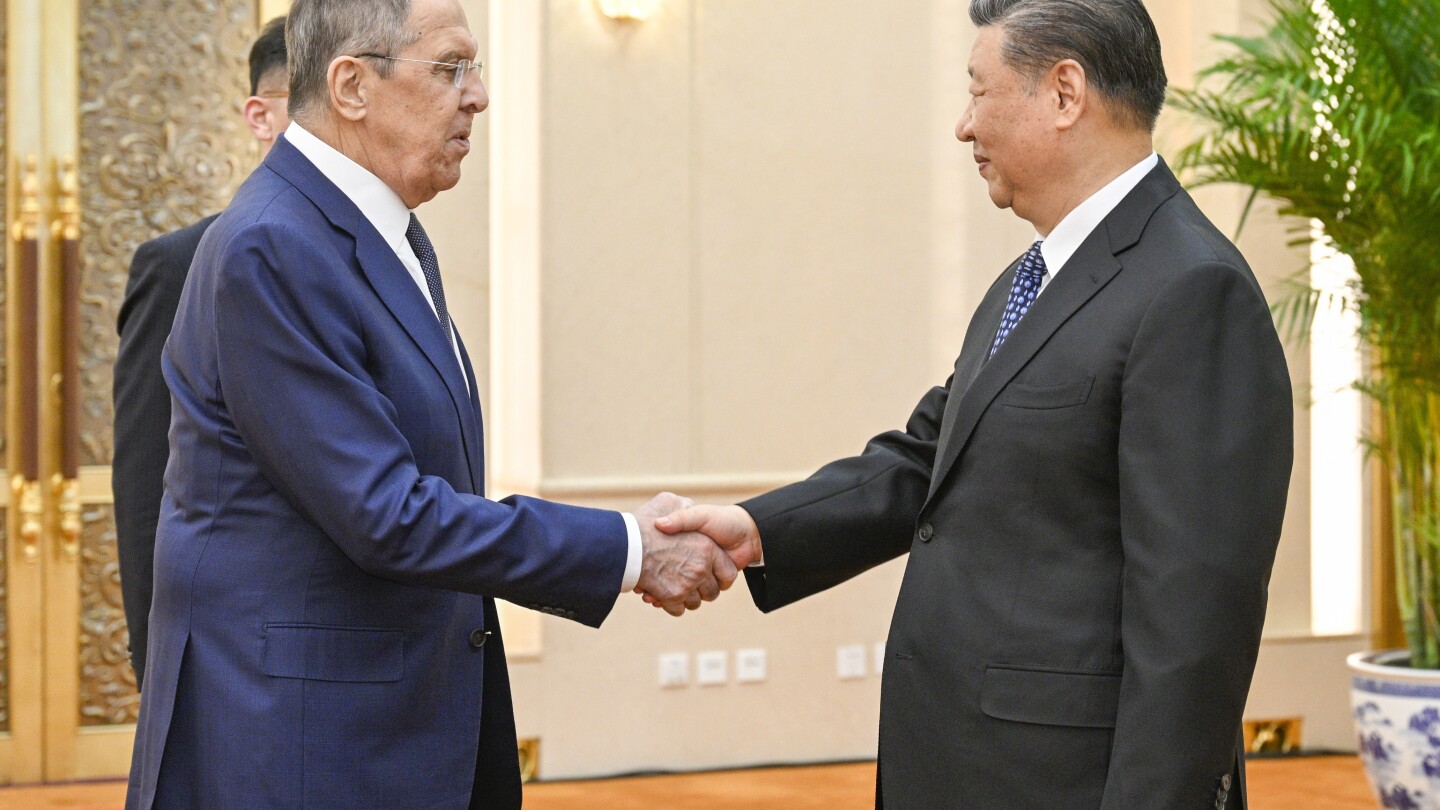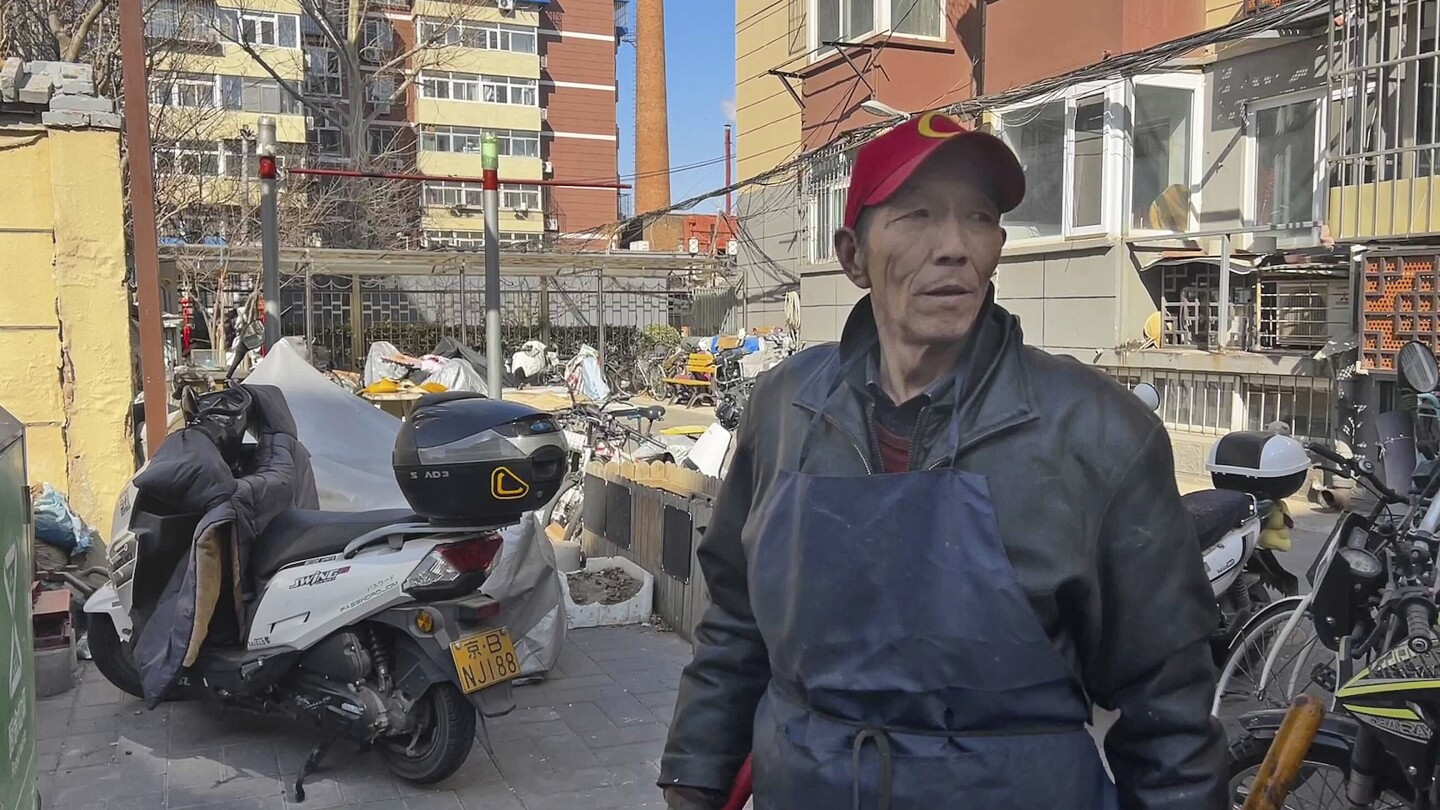China
China’s 618 Shopping Festival 2022; Apple’s Tmall sales exceeded US$2 bn
Published
2 years agoon

According to the data by Nint, a digital retail data service provider, as of the end of the first round of 618 Shopping Festival 2022 (June 3), the estimated sales of 59 brands in a single category (hereinafter referred to as sales) exceeded 100 million in the 36 categories counted.
Among them, the top 3 in sales are Apple, Haier, and Midea. Apple’s sales have even exceeded 5 billion yuan, opening a large gap with other brands.
JD reported over 10% growth in this year’s total 618 GMV while Alibaba and Pinduoduo didn’t disclose too much data on this year’s 618 sales.
CIW annual subscribers can download Top 10 Best-selling Brands in Tmall/Taobao 618 2022 here.
Alibaba Tmall 618 2022
In the May presale period, Tmall merchants will receive roughly RMB10 billion ($1.5 billion) in deposits made by consumers to secure their orders. Once shipping starts between June 1 and June 30, the remaining balance of up to RMB100 billion will be sent to businesses.
For cross-border merchants, international B2C marketplace Tmall Global is freeing up to RMB4 billion to their payment accounts as soon as parcels leave warehouses between June 1 and June 30.
Presale
Tmall 618 2022 pre-sale officially opened at 8 p.m. on May 26. The first wave of rush buying started at 8 p.m. on May 31 and the second wave starts at 8 p.m. on June 15.
This year, Taobao increased the pre-sale time during the 618 event, making the official pre-sale an increment for businesses to make a good start. The platform will provide the official pre-sale atmosphere, the official pre-sale venue, and search for recommended resources.
On June 18 this year, Taobao simplified the preferential rules and marketing complexity. The discount for cross store full sales was reduced by 20 yuan or 50 for every 199 or 1000 yuan spend.
Alibaba’s Taobao and Tmall are not the only e-commerce platforms for 618 shopping festival promotions. Many retailers and major online platforms, such as JD, Pinduoduo, Kuaishou, etc., have promotions to push up their sales.
Tmall 618 Sale
Alibaba didn’t share much this year’s 618 shopping festival sales data.
Among the 35 categories counted in a third-party research company Nint’s report, there were 6 brands with sales exceeding 1 billion yuan in a single category sales; and, 108 brands had sales exceeding 1 billion yuan each.
Among them, Apple, Midea, Haier, Xiaomi, and L’Oreal ranked among the top 5 in overall sales. With sales of 15 billion, Apple is the only brand with sales of more than 10 billion yuan (US$2.23 billion), and has become the biggest winner.
JD 618 2022
Instead of getting different coupons, Jingdong 618 platform offers an immediate RMB 50 yuan discount for every qualified RMB 299-yuan purchase, making the shopping process even simpler this time.
Presales
During the pre-order phase of this year’s 618 Grand Promotion from 8 p.m. on May 23 to midnight on the 29, sales of a number of top brands exceeded RMB 100 million yuan, such as Xiaomi, Haier, Lenovo, Huawei, Midea and more.
The official 618 Grand Promotion sales phase started at 8 p.m. on May 31 and lasts until June 20, during which JD’s customers can purchase their pre-ordered products to enjoy discounts and worry-free shopping services including same or next-day delivery service.
JD’s data during the past six days revealed that the “post-95” generation showed rising spending power with pre-order sales up 75 percent YoY. Meanwhile, the product variety offered on JD.com during this year’s shopping festival increased by 20 percent and a robust demand is seen from China’s sixth-tier cities with over 100 percent growth YoY.
Sales of the home appliances category as a whole rose by 200 percent YoY, while order volume of new products tripled. Sales of tablets, home use printers, and mechanical keyboards increased 100, 170, and 400 percent respectively.
In the healthcare category, the overall order volume on JD Health grew by 186 percent YoY.
The number of products joining the pre-order period increased by 219 percent. Deposits for body fat measurers increased 576 percent YoY, and that of Bio Island’s DHA for kids grew 10 times, becoming the biggest “dark horse” during JD Health’s pre-order period.
More and more customers are getting used to online ordering for offline services.
Orders of automobile products with installation services on JD.com increased 240 percent YoY, among which tire-changing service orders is up by 135 percent; furniture with installation service orders increased 127 percent, and travel orders are up by 110 percent on JD.com.
JD’s latest omni-channel store, the J Shop, attracted 50 percent more merchants to participate in this year’s shopping festival, who together brought double the amount of products in the fashion and lifestyle categories.
During the pre-order phase, the J Shop channel presented over a hundred best-sellers from an array of big brands from home and abroad, such as SK-II gift boxes, Arman Men’s T-shirts, and Lancôme’s anti-aging serum, just to name a few.
More than 20 brands under JD Luxury reached over 100 percent sales growth month over month, including Tory Burch, MCM, Chopard, and more. BVLGARI’s daily sales on JD Luxury during the past six days quadrupled its average amount. The top 3 Swiss watches are from Longines, Tissot, and MIDO, with Longines’ sales increasing by 160 percent YoY.
618 Sales
The 19th JD 618 Grand Promotion officially kicked off at 8 p.m. on May 31 after an eight-day pre-order phase.
In the first 10 minutes of the mid-year shopping festival, the sales of a number of brands exceeded RMB 100 million yuan, including Xiaomi, Midea, Haier, Lenovo, Apple, HONOR, Huawei, SONY, Asus, Siemens and more.
Smartphones, air conditioners, Chinese sticky rice dumplings for Dragon Boat Festival (which falls on June 3 this year), baby formula, and toys were the hottest search keywords in those first 10 minutes, according to JD’s data.
Over a hundred home brands on JD.com reached double sales growth in the first 10 minutes.
Electronics products such as tablets, home use printers and projectors, ready-to-cook products, kitchenware, and home workout products such as smart mirrors and massage guns, are among the popular categories during this shopping festival.
JD Worldwide offers cross-border imports to Chinese customers. Nearly 150 overseas brands saw more than 200 percent sales growth in the first 10 minutes. Sales of nearly 100 sub-categories exceeded 100 percent growth YoY. The top 3 brands in sales are Nintendo, Swarovski and a2 milk powder.
As of 23:59 on June 18th Beijing time, JD.com reported a total transaction volume of RMB 379.3 billion yuan (US$56.7 billion) for JD 618 Grand Promotion 2022, which exceeded last year’s RMB 343.8 billion yuan.
In JD 618 this year, 26 stores exceeded 1 billion yuan sales orders, the number of new product sales increased by more than 20% year-on-year, and the turnover of more than 30 trending categories increased by more than 10 times year-on-year.
TikTok 618
During 618 last year, Douyin (Tiktok in China) e-commerce saw a total of 28.52 million hours of live streaming. This year, it reached 40.45 million hours from June 1 to June 18, an increase of more than 40% over the same period last year.
Short videos embedded with shopping carts were played 115.1 billion times.
The “search” function made an amazing contribution during this 618 event. Douyin mall led to a year-on-year sales increase of 514%, search scene led to a year-on-year increase of 293%, and the number of merchants participating in the activity increased by 159%.


WASHINGTON (AP) — China has surged sales to Russia of machine tools, microelectronics and other technology that Moscow in turn is using to produce missiles, tanks, aircraft and other weaponry for use in its war against Ukraine, according to a U.S. assessment.
Two senior Biden administration officials, who discussed the sensitive findings Friday on the condition of anonymity, said that in 2023 about 90% of Russia’s microelectronics came from China, which Russia has used to make missiles, tanks and aircraft. Nearly 70% of Russia’s approximately $900 million in machine tool imports in the last quarter of 2023 came from China.
Chinese and Russian entities have also been working to jointly produce unmanned aerial vehicles inside Russia, and Chinese companies are likely providing Russia with nitrocellulose used in the manufacture of ammunition, the officials said. China-based companies Wuhan Global Sensor Technology Co., Wuhan Tongsheng Technology Co. Ltd. and Hikvision are providing optical components for use in Russian tanks and armored vehicles.
The officials said Russia has received military optics for use in tanks and armored vehicles manufactured by Chinese firms iRay Technology and North China Research Institute of Electro-Optics, and China has been providing Russia with UAV engines and turbojet engines for cruise missiles.
Russia’s semiconductor imports from China jumped from $200 million in 2021 to over $500 million in 2022, according to Russian customs data analyzed by the Free Russia Foundation, a group that advocates for civil society development.
Beijing is also working with Russia to improve its satellite and other space-based capabilities for use in Ukraine, a development the officials say could in the longer term increase the threat Russia poses across Europe. The officials, citing downgraded intelligence findings, said the U.S. has also determined that China is providing imagery to Russia for its war on Ukraine.
The officials discussed the findings as Secretary of State Antony Blinken is expected to travel to China this month for talks. Blinken is scheduled to travel next week to the Group of 7 foreign ministers meeting in Capri, Italy, where he’s expected to raise concerns about China’s growing indirect support for Russia as Moscow revamps its military and looks to consolidate recent gains in Ukraine.
President Joe Biden has previously raised his concerns directly with Chinese President Xi Jinping about Beijing indirectly supporting Russia’s war effort.
While China has not provided direct lethal military support for Russia, it has backed it diplomatically in blaming the West for provoking Russian President Vladimir Putin’s decision to launch the war and refrained from calling it an invasion in deference to the Kremlin.
China has repeatedly said it isn’t providing Russia with arms or military assistance, although it has maintained robust economic connections with Moscow, alongside India and other countries, amid sanctions from Washington and its allies.
“The normal trade between China and Russia should not be interfered or restricted,” said Liu Pengyu, spokesman of the Chinese Embassy in Washington. “We urge the U.S. side to refrain from disparaging and scapegoating the normal relationship between China and Russia.”
Xi met in Beijing on Tuesday with Russian Foreign Minister Sergey Lavrov, who heaped praise on Xi’s leadership.
Russia’s growing economic and diplomatic isolation has made it increasingly reliant on China, its former rival for leadership of the Communist bloc during the Cold War.
Treasury Secretary Janet Yellen, who returned to Washington this week from a visit to Beijing, said she warned Chinese officials that the Biden administration was prepared to sanction Chinese banks, companies and Beijing’s leadership, if they assist Russia’s armed forces with its ongoing invasion of Ukraine.
The Democratic president issued an executive order in December giving Yellen the authority to sanction financial institutions that aided Russia’s military-industrial complex.
“We continue to be concerned about the role that any firms, including those in the PRC, are playing in Russia’s military procurement,” Yellen told reporters, using the initials for the People’s Republic of China. “I stressed that companies, including those in the PRC, must not provide material support for Russia’s war and that they will face significant consequences if they do. And I reinforced that any banks that facilitate significant transactions that channel military or dual-use goods to Russia’s defense industrial base expose themselves to the risk of U.S. sanctions.”
The U.S. has frequently downgraded and unveiled intelligence findings about Russia’s plans and operations over the course of the more than 2-year-old war with Ukraine.
Such efforts have been focused on highlighting plans for Russian misinformation operations or to throw attention on Moscow’s difficulties in prosecuting its war against Ukraine as well as its coordination with Iran and North Korea to supply it with badly needed weaponry. Blinken last year spotlighted intelligence that showed China was considering providing arms and ammunition to Russia.
The White House believes that the public airing of the intelligence findings has led China, at least for now, to hold off on directly arming Russia. China’s economy has also been slow to emerge from the COVID-19 pandemic. Chinese officials could be sensitive to reaction from European capitals, which have maintained closer ties to Beijing even as the U.S.-China relationship has become more complicated.
Meanwhile, China on Thursday announced rare sanctions against two U.S. defense companies over what it called their support for arms sales to Taiwan, the self-governing island democracy Beijing claims as its own territory to be recovered by force if necessary.
The announcement freezes the assets of General Atomics Aeronautical Systems and General Dynamics Land Systems held within China. It also bars the companies’ management from entering the country.
Filings show General Dynamics operates a half-dozen Gulfstream and jet aviation services operations in China, which remains heavily reliant on foreign aerospace technology even as it attempts to build its own presence in the field.
The company also helps make the Abrams tank being purchased by Taiwan to replace outdated armor intended to deter or resist an invasion from China.
General Atomics produces the Predator and Reaper drones used by the U.S. military.
___
AP writers Didi Tang and Fatima Hussein contributed reporting.
China
China’s gambling hub of Macao holds its its final horse race, ending a tradition of over 40 years
Published
4 months agoon
March 30, 2024
MACAO (AP) — After more than 40 years, Macao’s horse racing track hosted its final races on Saturday, bringing an end to the sport in the city famous for its massive casinos.
In January, the city’s government said it would terminate its contract with the Macao Jockey Club in April. The decision came at the request of the Macao Horse Race Company, which cited operational challenges as part of the reasons for the closure.
On Saturday, gamblers congregated in the half-full stands and placed their final bets. Some tourists also visited the track.
Mai Wan-zun, a student from mainland China in Macao, said she wanted to get a taste of the atmosphere. “We could come to see horse racing here in Macao, but not in mainland China,” she said.
Helena Chong, a Macao resident, decided to visit the race course for the first and last time to see what it’s all about.
“It’s a pity to see the end of all this gambling and entertainment,” she said.
Horse racing in the former Portuguese colony has struggled with economic challenges in recent years and has yet to rebound from the impacts of the COVID-19 pandemic. Its jockey club had accumulated operating losses of over $311 million, the Macau News Agency earlier reported.
Under the termination arrangement, the horse racing firm had pledged to arrange for transportation of owners’ horses to other locations by March 2025, and handle the company’s employees according to the law, the government said.
In neighboring Hong Kong, horse-racing remains popular and profitable. Its jockey club runs various gambling activities and is the city’s major donor of many charity works.
China
Migrant workers who helped build modern China have scant or no pensions, and can’t retire
Published
4 months agoon
March 28, 2024
BEIJING (AP) — At 53, Guan Junling is too old to get hired at factories anymore. But for migrant workers like her, not working is not an option.
For decades, they have come from farming villages to find work in the cities. Toiling in sweatshops and building apartment complexes they could never afford to live in, they played a vital role in China’s transformation into an economic powerhouse.
As they grow older, the first generation of migrant workers is struggling to find jobs in a slowing economy. Many are financially strapped, so they have to keep looking.
“There is no such thing as a ‘retirement’ or ‘pensions’ for rural people. You can only rely on yourself and work,” Guan said. “When can you stop working? It’s really not until you have to lie in bed and you can’t do anything.”
She now relies on housecleaning gigs, working long days to squirrel away a little money in case of a health emergency. Migrant workers can get subsidized health care in their hometowns, but they have little or no coverage elsewhere. If Guan needs to go to hospital in Beijing, she has to pay out of pocket.
As China’s population ages, so are its migrant workers. About 85 million were over 50 in 2022, the latest year for which data is available, accounting for 29% of all migrant workers and up from 15% a decade earlier. With limited or no pensions and health insurance, they need to keep working.
About 75% said they would work beyond the age of 60 in a questionnaire distributed to 2,500 first-generation migrant workers between 2018 to 2022, according to Qiu Fengxian, a scholar on rural sociology who described her research in a talk last year. The first-generation refers to those born in the 1970s or earlier.
Older workers are being hit by a double whammy. Jobs have dried up in construction due to a downturn in the real estate market and in factories because of automation and the slowing economy. Age discrimination is common, so jobs tend to go to younger people.
“For young people, of course, you can still find a job, positions are available, though the wage is not high enough,” said Zhang Chenggang of Beijing’s Capital University of Economics and Business, where he directs a center researching new forms of employment.
“But for older migrant workers, there simply are no positions,” said Zhang, who conducted field studies at four labor markets across China late last year. “Now, the problem is that no matter how low the wage is, as long as someone pays, you will take the job.”
Some job recruiters contacted by AP said older workers don’t work well or have underlying illnesses. Others declined to answer and hung up.
Many are turning to temporary work. Zhang Zixing was looking for gigs on a cold winter day late last year at a sprawling outdoor labor market on the outskirts of Beijing.
He said he was fired from a job delivering packages because of his age about three years ago, when he reached 55. In December, he was earning 260 yuan (about $35) a day installing cables at construction sites.
Zhang Quanshou, a village official in Henan province and a delegate to China’s National People’s Congress, said some older migrant workers are just looking for work near their hometowns, while others still head to larger cities.
“Some older migrant workers are finding temporary jobs, so it is important to build the temporary job market and provide a better platform for such services,” Zhang, the Communist Party secretary of the village, said in an emailed response to questions during a recent annual meeting of the Congress.
Guan, who comes from a rice-farming region in the north, worked on a clothing factory assembly line until she was laid off when she was in her 40s. She then worked various jobs in different cities, winding up in Beijing in 2018.
She works seven days a week, partly because she’s afraid labor agencies won’t call again if she turns an offer down.
Over February’s Lunar New Year holiday, when migrant workers traditionally go home to visit their families, she stayed in Beijing as a caretaker for an elderly woman, because the woman needed help and she needed the money.
“People either want someone who’s educated or young, and I don’t meet either of those requirements,” said Guan, who dropped out after middle school because her parents had only enough money to educate their son. “But then I think, regardless of how other people look at me, I have to survive.”
Guan worries jobs will be even harder to find when she reaches 55. The retirement age for women in China is 50 or 55, depending on the company and type of work. For men, it is 60.
Lu Guoquan, a trade union official, has proposed relaxing age limits for jobs, judging workers by their physical condition instead of their age and making it easier for older people to find work through labor markets and online platforms.
“A large number of farmers have entered cities, making an important contribution to the modernization of our country,” said his proposal, made to an advisory body during the recent national congress and seen by the AP.
As workers grow older, “they are gradually becoming a relatively vulnerable group in the labor market and face a number of thresholds and problems in continuing to work,” it said.
Lu, director of the general office of the All-China Federation of Trade Unions, declined an interview request.
Duan Shuangzhu has spent 25 years collecting trash in one Beijing neighborhood after giving up a life of raising sheep and cows in north China’s Shanxi province when he was in his 40s. He gets up at 3:30 a.m. seven days a week to make his rounds. For that, he earns 3,300 yuan ($460) a month and has a basement room to live in.
Duan’s wife stayed on the farm, where she looks after their grandchildren. Duan has managed to save money for himself, his children and his grandchildren, but never paid into a pension system, directing what little he earns to his family.
That fits the pattern Qiu found in her research, which she published in a book last year. Older migrant workers moved to the cities to improve the lives of their children and other relatives, not themselves, she found. Most have limited or no savings, and few have climbed the economic ladder. They hoped their children would, but most ended up as migrant workers, too.
Most migrant workers’ earnings were spent on their children’s marriages, homes and education, Qiu said in her talk. “Basically, they did not begin working for themselves and planning for their own late years until the age of 55.”
Duan, at 68, has no plans to quit.
“As long as I can work every day, it’s enough to survive,” he said, standing next to a set of community rubbish bins, color-coded for recycling. “I didn’t grow up in a wealthy family — just filling my stomach each day is enough for me.”
___
Associated Press researcher Wanqing Chen contributed to this story.







